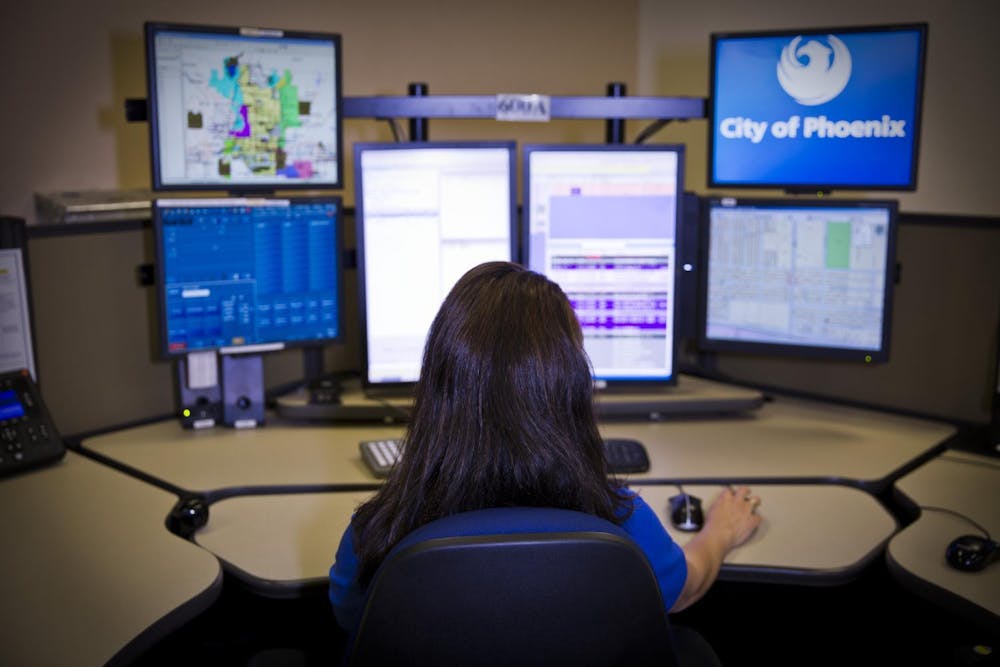9-1-1 dispatchers are relied on to answer frantic calls from people in need, but before March 2023, nobody was answering theirs.
Dispatchers were expected to pay out of pocket for counseling services. However, the Arizona legislature passed House Bill 2717, which provides trauma counseling for 9-1-1 dispatchers.
Representative Melody Hernandez sponsored the bill that became state law. Hernandez wears multiple hats: not only is she the representative of Arizona’s 8th district, but she also works full-time as a paramedic.
Being a paramedic was the reason she ran for office. One experience on the job struck Hernandez; she had to deal with the death of a young child. She called off of work for weeks and used up her paid time off.
“Representation is so important. It’s a call to serve,” Hernandez said. “Our most powerful tool in legislature is our ability to relay our personal experiences.”
Hernandez said she’s able to directly help the situation. She understands that dispatchers are forced to remain calm as they listen to the horrors on the other line.
“The things that stay with you the most on these traumatic calls are the sounds, the screams,” Hernandez said.
The push to sign the bill into state law came after Hernandez’s personal struggles with PTSD. Through working 10 to 48-hour shifts, 3 to 4 times a week, Hernandez has had to endure many different experiences which left her disturbed.
“If we feel like we let the patient down, it feels like we didn’t fight to the best of our ability, and therefore did not survive the experience,” Hernandez said.
Sergeant Phil Krynsky said the Phoenix Police Department supported its employees even before the passage of the bill. The program is provided through their Employee Assistance Unit.
“Previous to this bill, the Phoenix Police Department had a robust employee wellness program… which provides free counseling services with the Crisis Preparation and Recovery. The department continues to provide this program to our employees,” Krynsky said.
Despite the existence of this program, some dispatchers still deal with high stress levels. According to Frontline Rehab, a website run by former first responders to share their experiences, researcher Dr. Lauren Shatkin measured stress levels of multiple jobs. The test rated 9-1-1 dispatchers a 98.5, which is considered a high score correlated with high stress levels.
Retired Phoenix 9-1-1 dispatcher Louisa Pedraza, however, said she does not regret her career. Despite the mental strain that could arise from such a job, after more than 30 years, she values her time as a dispatcher because it allowed her to help people during crises.
“This job is the most rewarding thing I could ever imagine doing,” Pedraza said. “I have so much respect for people who do this job.”
Pedraza also recognized the need for mental health services, and said easy access to it can improve the lives of 9-1-1 dispatchers.
“It’s very easy to get burnt out with this job.... There are people who stay for long periods of time and they could certainly use that counseling,” she said. “I just want them to be able to have the best services that we can give them.”
Pedraza said that if the bill had been created before, more dispatchers would have become more comfortable with fighting the stigma against mental health.
“[9-1-1 dispatchers] should be able to ask for help and have it offered to (them)," Pedraza said. "I hope going forward (with this bill) people will be able to feel more comfortable with asking for help."

